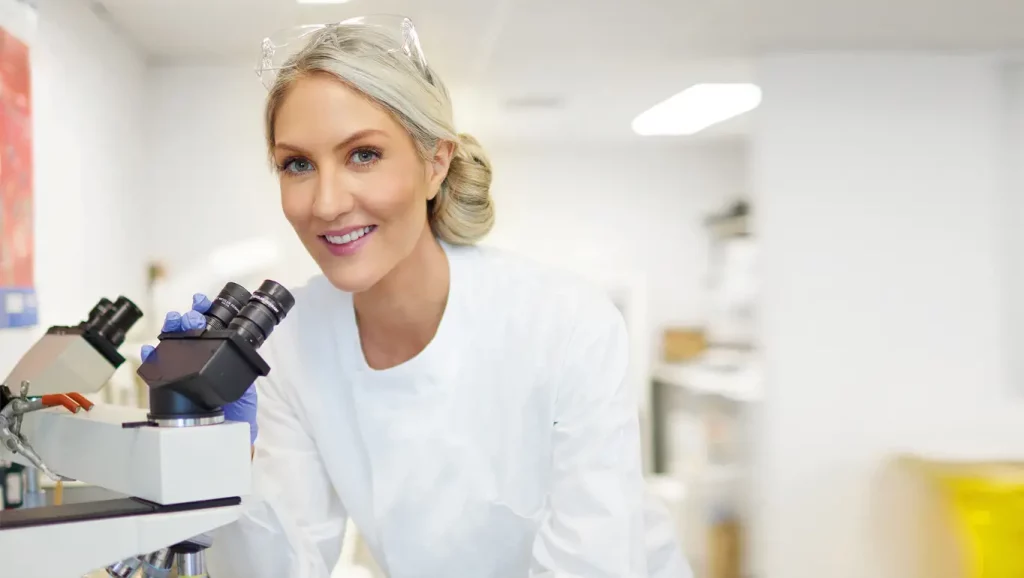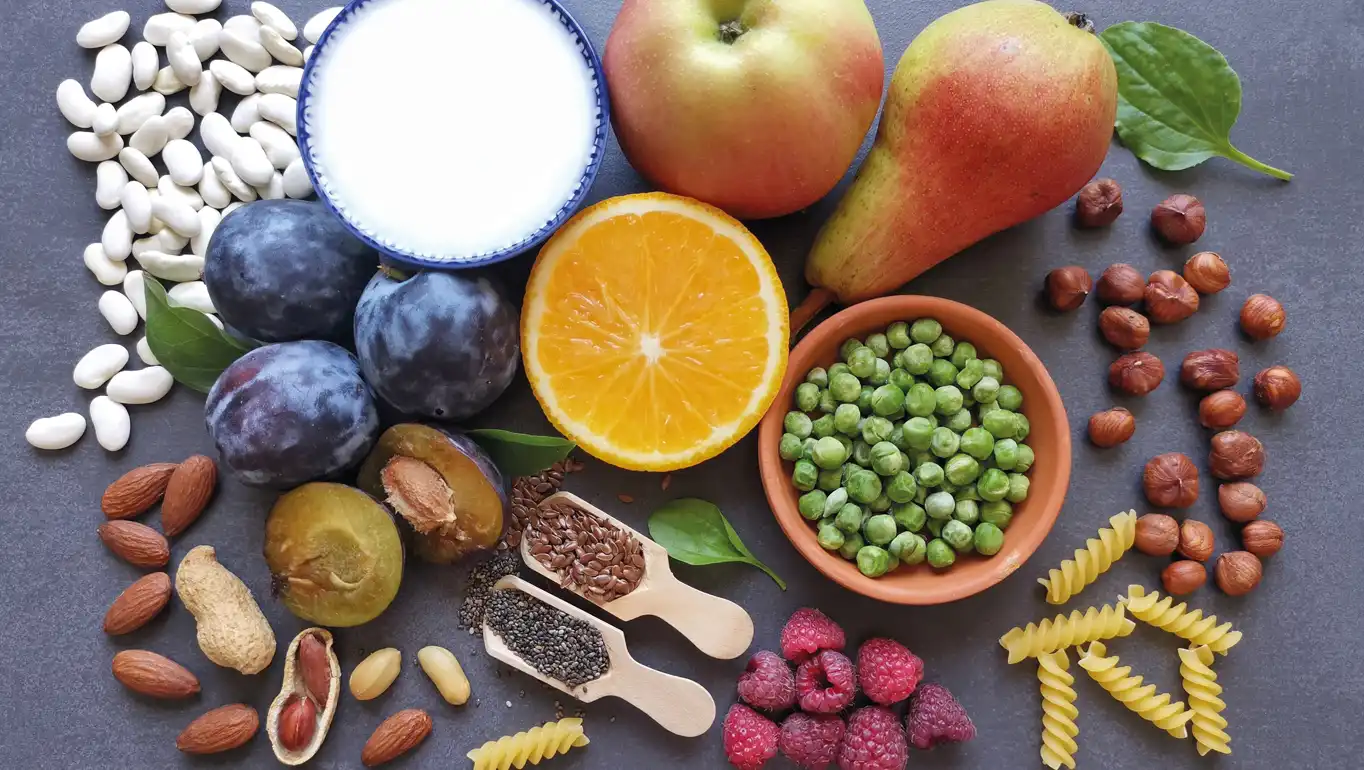When you hear the term gut health, what’s the first thought that comes to mind? Most people will say digestive health. But the latest science tells us that your gut influences all your organs and pretty much every bodily function, from hormonal health to your skin and mental wellbeing, too. This powerful organ can even influence longevity and has been linked with lowering the risk of over 70 chronic diseases.
This is, in part, thanks to the trillions of bacteria that live in the gut, which we call the gut microbiota (GM). This community of bacteria is in constant communication with other bodily systems and functions. The empowering thing is that, unlike your genetic makeup, your GM can be shaped simply by how you treat it, which means that a big part of your health is in your hands.
As interest in the gut continues to gain momentum globally, let’s break down the latest science and actional tips that you can implement to maximise your gut and, therefore, overall health.
Why is having a healthy gut so important?
The gut-immune connection
Around 70% of immune cells exist in your gut (alongside your GM), meaning the gut plays a key role in your immunity. Your microbes teach your immune cells what they need to protect you against (e.g., flu-causing viruses) and what is safe (e.g., the protein in milk). My colleagues
at King’s College London found that people who ate a more varied diet full of plants—which nourish your gut bacteria—had a 40% lower risk of becoming unwell with COVID-19. We also see this with cold and flu, where coadministration of specific live bacteria (Lactobacillus rhamnosus, LGG and Bifidobacterium lactis, BB12) have been shown to reduce the duration by two days and severity of symptoms by over 30% compared to placebo.
The gut-metabolism connection
There is a strong connection between your GM and your metabolism, which is a key target to help you achieve and maintain a healthy weight. One study found that increased fiber intake (which is essentially food for your gut bacteria, as we explore below), regardless of calorie intake or type of diet, resulted in a healthier weight for participants. With worldwide obesity rates more than doubling since 1990, focus on the gut could be transformative for this complex health area.
The gut-skin connection
Did you know that the microbes in our gut and on our skin can communicate? This may explain why many skin conditions, such as eczema and even premature aging, have been linked to gut health. That being said, the skin microbiome research (yes, we have billions of bacteria that call our skin home, too) is still in its early days, but you have nothing to lose and everything to gain by improving your gut health (tips below) and assessing how it helps improve your skin health. In clinic, I’ve seen just how transformative it can be for many.
The gut-brain connection
Have you heard the term gut feelings? This actually has a scientific basis because the gut and the brain are connected through hundreds of millions of nerves. This means that what’s going on in your brain can influence what’s going on in your gut and vice versa. Disruptions in this system have been linked to conditions like depression, anxiety, Parkinson’s and Alzheimer’s diseases. At the same time, diet interventions, including the 2017 SMILES trial, have been shown to improve mental health conditions by utilizing this connection.

Practical steps to better gut health
I firmly believe that gut health should be an important consideration for everyone, but how do you know if you have a healthy gut? Unlike most other organs, there is currently no single assessment to determine how healthy your gut is (which is why I developed a free gut health quiz that takes just three minutes to complete based on hundreds of research papers underpinning the science of gut health).
I recommend completing this quick assessment before and every few months after implementing the below five key principles for better gut health:
1. Focus on plant diversity
• A world-leading study shows that people who eat at least 30 different plant-based foods a week had better gut health than people who ate fewer than ten, even if the latter ate more plants in total.
• Think of each plant as a unique fertilizer, feeding the trillions of different types of bacteria in your gut. The more variety, the stronger your army of microbes, which can support the gut’s connections.
• Aim to get your weekly intake across what I call the ‘Super Six’ (vegetables, fruit, wholegrains, nuts and seeds, legumes, and herbs and spices). Researchers at the University of Bergen found that eating across the ‘Super Six’ can add up to a decade of healthy years to your life. It initially sounds intimidating, but it’s easier, cheaper and tastier than you might think. Add one point for each type of plant you eat, except for herbs and spices, which count as ¼ of a point.
2. It’s about INclusion, not EXclusion
• Research has shown that adding nourishing food (like the ‘Super Six’) has a much greater effect than just cutting out other foods. This concept of inclusion rather than restriction is key to my food philosophy and a more enjoyable and sustainable diet, long-term.
• Unnecessarily cutting out food groups (like gluten) can have unexpected consequences like starving your gut bacteria. For example, a study of nearly 200,000 people by Harvard University
in the US, found that those who consumed the most gluten had a 20% lower risk of type 2 diabetes compared with those who had the lowest gluten intake. This is not because gluten itself is protective, but it’s found in foods that can be, such as barley and rye, for example.
• The more you restrict, the more likely you are to overeat those banished foods when you can. Researchers from the University of Toronto found volunteers who had been told they weren’t allowed chocolate for a week had more cravings than those who could eat whatever they fancied. Those with restrictive tendencies in the ‘no chocolate’ group also ate more chocolate than those who weren’t restrictive when given the opportunity.
3. Try to bring the Mediterranean way of eating to your home
• Extra virgin olive oil (EVOO): When it comes to choosing oils to use in your cooking, this is hands-down the winning oil in terms of research into health benefits. I even replace butter with this in most of my cooking for extra health benefits. And despite what you may have heard, you can safely cook with good quality EVOO up to 200 degrees.
• Oily fish (sardines, salmon, mackerel, herring and anchovies): Including two portions of omega-3-rich oily fish a week can help ensure good communication between brain cells (research has even found that people with depression tend to have lower levels of omega-3 in their blood). If you don’t eat fish or are concerned about the environmental aspects, then it might be worth considering an algae oil supplement to make sure you’re getting enough omega-3.
• Fermented dairy: Swap standard dairy for fermented varieties, such as live yogurt, kefir and ‘aged’ (i.e., not mass-produced) cheese, such as Parmesan.
4. Get specific with your supplements
• As with any other medication, it’s essential to take a targeted approach to supplements rather than a ‘just-in-case’ approach. More doesn’t always mean better; many supplements can counteract each other, e.g., magnesium supplements can impact iron absorption. While most people don’t need supplements, there are two key situations where taking a supplement can be beneficial.
• The first is when you have a deficiency—this is where a blood test or guidance from a medical professional comes in. Common deficiencies include vitamin D and iron, and they require specific supplements to correct.
• The second is when you’re looking for a targeted effect. For example, taking the probiotic strain Lactobacillus rhamnosus (LGG) alongside antibiotics usage has been shown to reduce your risk of antibiotic associated diarrhoea (AAD) by 70%. For this reason, the World Gastroenterology Organisation guidelines on probiotics recommend everyone take this specific bacteria (dose ten billion twice per day) throughout their antibiotic course, given AAD can affect up to one in three people on antibiotics.
5. Chew your food well
• It might sound simple, but there’s strong science behind it. Chewing thoroughly essentially ‘activates’ enzymes in your saliva, helping your body break down food and absorb nutrients more effectively.
• Aim for 20–30 chews per bite, depending on texture or start small by adding just two extra chews per week and building from there.
While focusing on the above, don’t forget other foundations of health, including sleep, stress management and movement, which can also directly impact the healthy functioning of your gut.
For more science-backed advice from Dr Megan Rossi, visit: www.theguthealthdoctor.com and www.smartstrains.com



